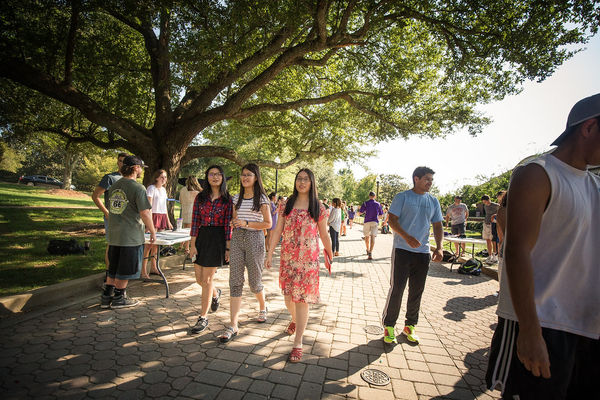Campus life after COVID-19 cannot go back to exactly the same as it used to be, nor should it. Before the pandemic began, campus life seemed very artificial; many students spent their time trying to join as many interesting-sounding organizations as they could, either for resume padding, finding new friends or some combination of the two. Furman even sponsored a whole day where every group, club and organization on campus set up a table in front of Trone, to draw in as many students as they could. Reminiscent of an auction house, students are bombarded with pamphlets, posters and all other manners of tactics these groups use to sell themselves to the crowd. During this event, it becomes clear which clubs run things on campus: it’s the clubs run by the group of students that have been described as the “social climbers.”
After spending more time in those clubs, students find out what they actually have to offer, not just what they market themselves to be. If you were to ask students their opinions of some of the organizations the university likes to promote, such as FUSAB, you would find a notable number of students that are deeply dissatisfied or distrustful of those groups. One factor that leads to distrust of these groups is financial; there have been many discussions regarding the financial situation of FUSAB in particular, but I am not here to single out FUSAB, nor am I here to discuss their financial situation. I am simply using them as an example because they are the most well known and visible group that dominates campus culture at Furman.
The main issue with many of these organizations is cultural. Several of these groups make it difficult for everyone to have an equal opportunity participating. They require an application early in the semester that makes it difficult for freshmen to get involved. Some freshmen may not have even heard of these groups by the time the process is over. Additionally, these clubs are severely insulated from the rest of the student body, leaving many students who are not a member feeling like they are almost unreachable. Rather than having responsive student organizations that foster a positive campus culture, we are left with groups that resemble a less malicious version of the “popular kids” in a cheesy high school drama show.
In order to combat this feeling of distrust and exclusivity towards the organizations that are supposed to be the leaders on campus, I suggest some positive changes be made. For example, actively engaging with students for input on future events could increase both attendance at events and faith in the hosting organization. It is important to distinguish between active and passive engagement, however; to actively engage with the student body would involve taking time to seek out student opinions and ideas rather than just waiting for someone to send in an idea. One of the most important lessons we can take away from COVID-19 regarding this is the power of social media and the internet. For example, hosting Zoom town halls that allow students to discuss potential ideas could be a simple way for these groups to actively engage with the rest of campus. Hopefully these groups can take what we have learned front the pandemic and adapt going forward to improve.
